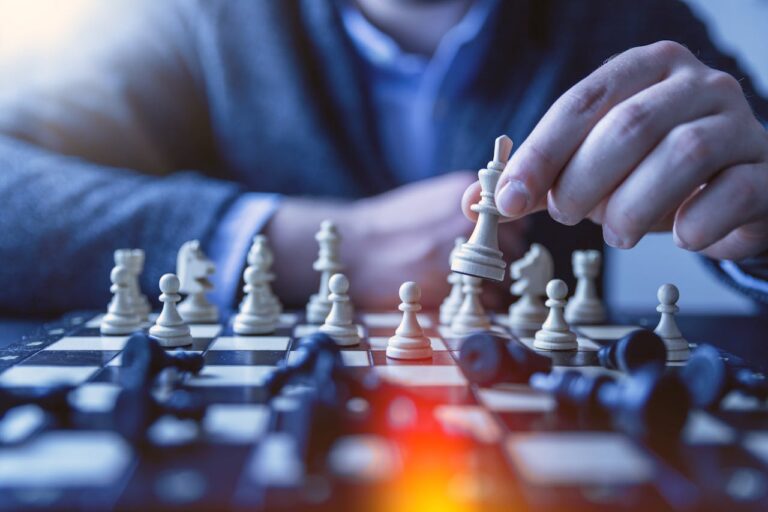Chess is more than just a board game. It’s a mental battleground where strategy meets psychology, and players enter a world where mind games are as crucial as physical moves. Every decision, every pause, every move builds a narrative not just on the board, but within the mind of the player. What makes some players flourish under pressure while others crumble? How do emotions, preparation, and memory collide to shape a champion?
If you’ve wondered about these aspects while eagerly watching a Magnus Carlsen endgame or listening to Hikaru Nakamura’s sharp tactics on a stream, this post will give you invaluable insight into the fascinating psychology behind chess.
Understanding the Mind of a Chess Player
Decision-Making on the Board
Great chess players aren’t just moving pieces—they’re calculating 10 to 20 moves ahead while factoring in an opponent’s potential strategy. Each move is a decision informed by thousands of hours of practice, case studies, and jaw-dropping amounts of brainpower.
For most players—and this includes even seasoned amateurs—decision-making requires weighing risk against reward. But professional players, like Magnus Carlsen, take it to another level. His seemingly effortless ability to visualize complex endgames stems not only from innate talent but deliberate cognitive training. Experts compare the decision-making process to solving a puzzle where the parameters are constantly shifting—a skill honed through repetition and acute focus.
Memory and Pattern Recognition
Memory is the unsung hero of chess mastery. Players rely heavily on “chunking,” where they memorize patterns of moves instead of memorizing each move separately. Grandmasters, like Garry Kasparov, have been known to recall and reference thousands of games in their heads. This pattern recognition speeds up their decision-making during crucial moments.
An interesting study from Eindhoven University found that expert players could recreate chessboard arrangements after briefly viewing them, but only if the pieces formed a logical game scenario. This highlights how memory in chess is tied intrinsically to understanding the game rather than raw recall.
The Psychology Behind Winning and Losing
How Emotions Influence Gameplay
Imagine the pressure of a live tournament with people staring, the clock ticking, and your reputation on the line. Now imagine all of that magnified when you’re one mistake away from a blunder. Chess tests mental stability like few other activities, with emotions playing a key role in decision-making.
Anxiety might cause a player to rush into an impulsive move, while overconfidence might lead to underestimating an opponent’s trap. Hikaru Nakamura once noted, “Handling my emotions has been as critical as learning new openings. Staying calm helps me notice what others might miss under pressure.”
Rebounding from Losses
According to sports psychologists, recovering from a crushing defeat in chess is a skill that determines long-term success. Some players crumble, while others become more resilient. Techniques like mindfulness, self-reflection, and reviewing blunder-filled games objectively help players build stronger mental fortitude.
Grandmasters often treat losses as “data points” rather than failures. By reframing the loss as an opportunity to analyze mistakes, they manage to extract lessons rather than dwell emotionally on the outcome.
The Importance of Mental Preparation
Cognitive Training for Chess Success
Becoming great at chess isn’t just about the number of games you’ve played; it’s about training your brain to operate sharper and faster. Cognitive skills like focus, memory, and critical thinking are crucial and can be actively improved.
Chess players often use tools like visualization exercises—attempting to imagine entire games without looking at the board. Another common technique is solving complex puzzles daily, fostering problem-solving speed and accuracy.
Renowned chess psychologist, Dr. William Bart, says, “Strategic games like chess offer a unique platform to enhance cognitive skills, which has real-world applications in decision-making and leadership.”
The Role of Physical Health
It’s easy to forget, but physical endurance matters in chess. Long tournaments often stretch over several hours or even days. Players report that regular exercise, proper hydration, and nutrition significantly impact their ability to maintain focus during extended matches. Magnus Carlsen famously credits his success to a fitness routine that includes swimming and soccer.
The Chess Community and Mental Health
Community Support Among Players
Chess, although a solitary game during matches, thrives on community spirit. Online platforms like Chess.com host forums where amateurs and experts share techniques, strategies, and encouragement. This camaraderie fosters motivation and cultivates a sense of belonging for chess enthusiasts worldwide.
The warmth within the community isn’t limited to online interactions. Clubs, meetups, and tournaments often see players mentoring one another, particularly newer entrants. It’s a shared rhythm of passion for the game that crosses generations and cultures.
Addressing Mental Health Challenges
However, the competitive nature of chess has its toll. Burnout, chess-specific anxiety, and fear of failure are common struggles faced particularly by younger players. Awareness is growing, with organizations now integrating mental health support into their programs. Initiatives such as group counselling for players and education on self-care are becoming mainstream.
Daniel Rensch, COO of Chess.com, emphasized, “Recognizing the mental demands of competitive chess and offering the right support ensures the longevity of both careers and passion for the game.”
The Enduring Legacy of Chess
The journey to chess excellence is challenging, but that’s what makes the rewards so sweet. Chess players continuously push boundaries and redefine their limits, both mentally and physically. It’s a game that challenges not just skill, but character as well. As Magnus Carlsen once said, “Chess is like life; you can never master it.” So keep practising, keep learning from your losses, and enjoy the ride! Whether you’re a casual player or an aspiring grandmaster, there’s always more to discover in this timeless game.
The Power of Perseverance
One of the most remarkable qualities of top chess players is their ability to persevere through
Looking Ahead at Chess and the Mind
Chess evolves every year, and so does our understanding of the role psychology plays in the game. From analyzing emotions to harnessing cognitive skills, the future of chess will be shaped not just by moves on the board, but by what happens in the minds of its players.
Just as chess can teach life lessons about patience and resilience, it’s important to bring those attributes back to the game. The next time you play a match, reflect on not just your moves but also the mindset you bring to the table.
What are your thoughts on the psychology behind chess? Share your opinions or insights in the comments or discuss them in the community forum. After all, chess may be played in silence, but every move tells a story. So let’s continue writing that story, together.
Conclusion
In conclusion, the game of chess is not just about making the right moves, but also about understanding and managing our own minds. The psychology behind chess is a fascinating topic that highlights how our emotions, mental fortitude, and even physical health can greatly impact our performance in the game. By learning to harness these factors and approaching losses as opportunities for growth, we can become better players and individuals. With the support of a strong chess community, we can continue to evolve and improve both on and off the board. So let’s remember to not only focus on mastering opening strategies or studying complex endgames but also take





















0 Comments